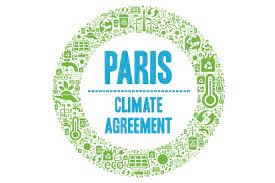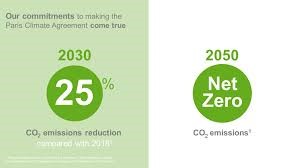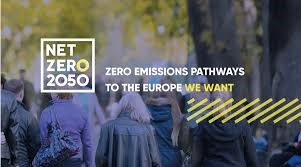Understanding the Paris Climate Agreement

For Beginners and Starters
eyesonsuriname
Amsterdam, 27 March 2023–The Paris climate Agreement, is a landmark international agreement aimed at addressing the issue of climate change. It was signed in December 2015 by 195 countries and entered into force on November 4, 2016. The Paris Agreement is widely regarded as the most significant international agreement on climate change to date, and it has received widespread support from governments, businesses, and civil society groups around the world.

The Paris Agreement is designed to strengthen the global response to the threat of climate change by keeping the increase in global average temperature to well below 2°C above pre-industrial levels, and to pursue efforts to limit the temperature increase to 1.5°C above pre-industrial levels. This is a critical goal, as temperatures that rise more than 2°C above pre-industrial levels would have catastrophic consequences for our planet, including rising sea levels, increased frequency and intensity of extreme weather events, and damage to ecosystems and biodiversity.
One of the key features of the Paris Agreement is the commitment of countries to regularly review and report on their progress in reducing greenhouse gas emissions. Each country must submit a nationally determined contribution (NDC) outlining their plan for reducing emissions and meeting the temperature goals set out in the Agreement. These NDCs are reviewed every five years to ensure that countries are making sufficient progress towards their goals.
Another important feature of the Paris Agreement is the establishment of a global fund to support developing countries in their efforts to mitigate and adapt to the impacts of climate change. This fund, known as the Green Climate Fund, is intended to provide financial assistance to developing countries to help them transition to low-carbon economies and adapt to the impacts of climate change.

The Paris Agreement has been hailed as a major step forward in the fight against climate change, and it has received widespread support from governments, businesses, and civil society groups around the world. However, the Agreement has also faced criticism from some quarters, particularly those who argue that it does not go far enough in addressing the urgent threat of climate change.
One criticism of the Paris Agreement is that it relies on voluntary commitments from countries rather than binding targets. While countries are required to submit NDCs outlining their plans for reducing emissions, there is no enforcement mechanism to ensure that countries meet these targets. This has led some critics to argue that the Paris Agreement lacks teeth and that it is unlikely to lead to meaningful action on climate change.

Another criticism of the Paris Agreement is that it does not adequately address the issue of climate justice.
Many developing countries argue that they have been unfairly burdened with the impacts of climate change, despite having contributed very little to the problem. These countries have called for developed countries to provide financial assistance and technology transfer to help them mitigate and adapt to the impacts of climate change.
Despite these criticisms, the Paris Agreement represents an important step forward in the fight against climate change. The Agreement has already led to significant progress in reducing greenhouse gas emissions, with many countries adopting ambitious targets to transition to low-carbon economies. In addition, the Agreement has galvanized public support for action on climate change, with millions of people around the world taking to the streets to demand action from their governments.
Moving forward, it is clear that much more needs to be done to address the urgent threat of climate change. The Paris Agreement provides a framework for action, but it is up to governments, businesses, and civil society groups to take concrete steps to reduce greenhouse gas emissions and transition to a low-carbon economy. This will require political will, financial investment, and technological innovation, but it is essential if we are to avoid the worst impacts of climate change and build a sustainable future for generations to come.
eyesonsuriname









